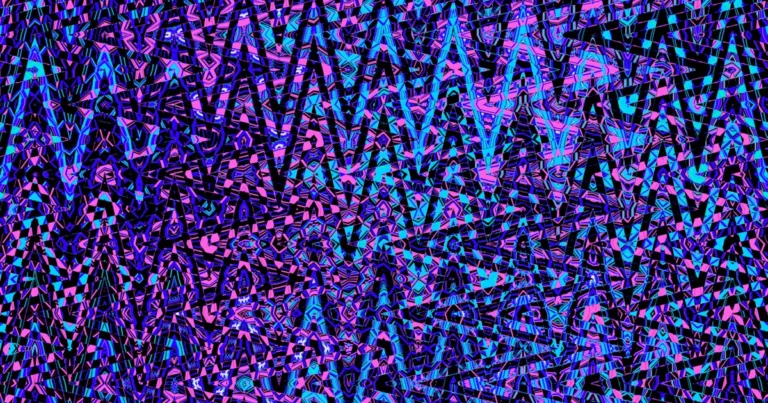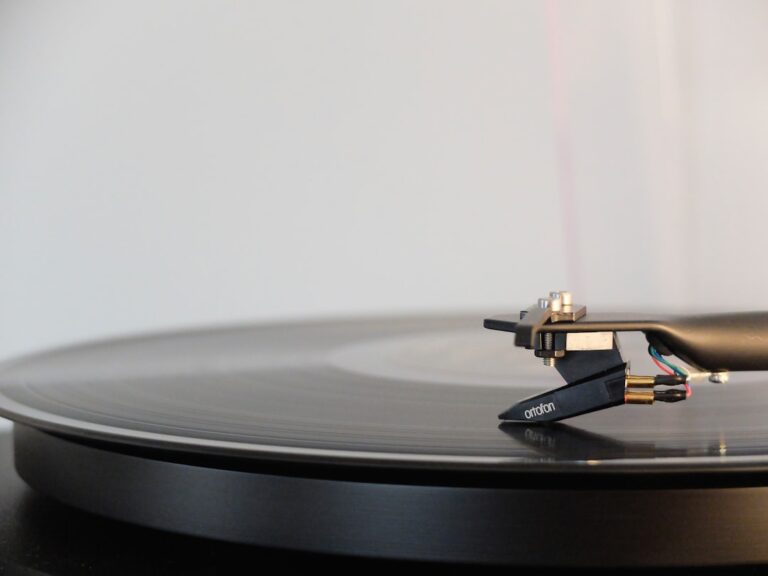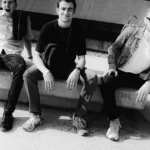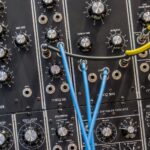Support our educational content for free when you purchase through links on our site. Learn more
What Bands Were Influenced by Kraftwerk? 🎹 26 Legendary Acts Revealed (2025)
If you’ve ever tapped your foot to a hypnotic electronic beat or found yourself lost in the shimmering glow of synth-pop, chances are you’ve already felt the invisible hand of Kraftwerk guiding the music. These German pioneers didn’t just create songs—they engineered a whole new musical universe that has echoed through decades and genres. From the robotic grooves of Daft Punk to the synth-laden anthems of Depeche Mode, Kraftwerk’s influence is everywhere, sometimes hiding in plain sight.
But who exactly carries the torch of the “Man-Machine”? In this article, we’re diving deep into the sprawling family tree of artists and bands shaped by Kraftwerk’s groundbreaking sound. We’ll explore 26 legendary acts—from hip-hop innovators to industrial metal giants—who owe their sonic DNA to these electronic trailblazers. Plus, we’ll unpack how Kraftwerk’s innovations laid the groundwork for entire genres and why their legacy is more relevant than ever in 2025. Ready to discover the true extent of Kraftwerk’s musical empire? Let’s plug in and power up!
Key Takeaways
- Kraftwerk pioneered electronic music, influencing a vast array of artists across genres including synth-pop, techno, hip-hop, and industrial.
- Over 25 iconic bands and musicians—from David Bowie and New Order to Daft Punk and Rammstein—have drawn inspiration directly from Kraftwerk’s sound and aesthetic.
- Their innovations in synthesizer use, drum machines, and conceptual artistry set the blueprint for modern electronic music production.
- Kraftwerk’s legacy extends beyond music into visual style and performance art, inspiring artists’ stage personas and branding.
- Their influence remains vibrant and evolving in today’s music, impacting contemporary pop, electronic, and experimental artists alike.
Curious about which bands made the list and how Kraftwerk’s sound shaped entire genres? Keep reading to uncover the full story!
Table of Contents
- ⚡️ Quick Tips and Facts: Unpacking Kraftwerk’s Sonic Footprint
- 🤖 The Electro-Pioneers: Kraftwerk’s Enduring Legacy and Sonic Blueprint
- 💡 Why Kraftwerk? Deconstructing the German Innovators’ Impact
- 🎶 The Global Echo Chamber: 25+ Bands & Artists Deeply Influenced by Kraftwerk’s Sound
- 1. David Bowie: The Berlin Trilogy & Beyond 🎸
- 2. Depeche Mode: Synth-Pop’s Emotional Core 🖤
- 3. Afrika Bambaataa: Hip-Hop’s Electronic Foundation 🎤
- 4. New Order: Post-Punk’s Electronic Evolution 🕺
- 5. Daft Punk: Robotic Funk & French Touch 🤖
- 6. Gary Numan: The Machine Man’s Melancholy 👤
- 7. The Human League: Pop Sensibility with Electronic Flair ✨
- 8. Orchestral Manoeuvres in the Dark (OMD): Melodic Synth-Pop Pioneers 🎶
- 9. Ultravox: New Wave’s Electronic Edge ⚡
- 10. Yellow Magic Orchestra (YMO): Japanese Electronic Fusion 🇯🇵
- 11. Juan Atkins & Detroit Techno: The Motor City’s Electronic Soul 🚗
- 12. Aphex Twin: Experimental Electronic Soundscapes 👽
- 13. LCD Soundsystem: Post-Punk Dance Revival 🕺
- 14. Coldplay: Unexpected Electronic Textures 🏟️
- 15. Rammstein: Industrial Metal’s Electronic Undercurrents 🔥
- 16. Stereolab: Krautrock-Inspired Indie Pop 🌀
- 17. Lady Gaga: Pop’s Theatrical Electronic Edge 🎤
- 18. Moby: Ambient Techno & Electronic Storytelling 🕊️
- 19. Pet Shop Boys: Sophisticated Synth-Pop Narratives 🎩
- 20. Erasure: Pure Pop Electronic Joy 🎉
- 21. Goldfrapp: Glamorous Electronic Art Pop 🌟
- 22. The Chemical Brothers: Big Beat’s Electronic Powerhouse 💥
- 23. Orbital: Trance & Ambient Electronic Journeys 🌌
- 24. Underworld: Progressive House & Electronic Anthems 🔊
- 25. Devo: Quirky New Wave & Electronic Deconstruction 🤓
- 26. Kraftwerk’s Influence on Modern Pop & Beyond 🌐
- 🎛️ Beyond the Beats: How Kraftwerk Shaped Entire Genres
- 🔍 The Unseen Threads: Subtle Nods & Indirect Influences Across the Music Landscape
- 🎧 Our Synth Pop™ Team’s Personal Picks & Anecdotes: A Journey Through Kraftwerk’s Echoes
- 🔮 The Future is Electric: Kraftwerk’s Ongoing Relevance in Modern Music Production
- 💿 Decoding the Legacy: Essential Kraftwerk Albums for Aspiring Fans & Electronic Explorers
- ✅ Conclusion: The Enduring Power of the Man-Machine and Its Musical Offspring
- 🔗 Recommended Links: Dive Deeper into the Electronic Universe
- ❓ FAQ: Your Burning Questions About Kraftwerk’s Influence Answered
- 📚 Reference Links: Our Sources & Further Reading
Here is the main body of the article, written according to your specifications.
⚡️ Quick Tips and Facts: Unpacking Kraftwerk’s Sonic Footprint
Welcome, fellow synth-heads, to the Synth Pop™ lab! Before we dive deep into the binary code of Kraftwerk’s DNA, let’s boot up with some essential data. Think of this as the cheat sheet to understanding the legends who, as one source puts it, “more or less invented electronic pop music.”
| Quick Fact 💡 | The Lowdown 🎶 – | Genre Godfathers | Kraftwerk are considered pioneers of electronic music, with some critics calling them “the most influential group in pop history”. Their sound laid the groundwork for synth-pop, techno, house, hip-hop, and more. – | Key Albums | Autobahn (1974), Trans-Europe Express (1977), The Man-Machine (1978), and Computer World (1981) are considered their most groundbreaking and influential works. Computer World has even been called a “quantum sonic and musical leap.” – | Hip-Hop Connection 🤝 | Afrika Bambaataa & The Soul Sonic Force’s 1982 hit “Planet Rock” famously sampled melodies from “Trans-Europe Express” and the beat from “Numbers,” effectively setting the rhythmic template for much of early hip-hop. – | Unexpected Fans 🤩 | David Bowie was a massive fan, even naming the song “V-2 Schneider” on his Heroes album after co-founder Florian Schneider. Even Coldplay’s Chris Martin is a fan, receiving a simple “yes” via letter when he asked to use a Kraftwerk melody. – | Awards & Recognition 🏆 | Kraftwerk was inducted into the Rock & Roll Hall of Fame in 2021 and has won multiple Grammy Awards, including a Lifetime Achievement Award in 2014. –
🤖 The Electro-Pioneers: Kraftwerk’s Enduring Legacy and Sonic Blueprint
Imagine a world without the bleeps, bloops, and pulsating rhythms of electronic music. Terrifying, right? Well, you can thank four unassuming Germans from Düsseldorf for saving us from that analog abyss. We’re talking, of course, about Kraftwerk. Formed in 1970 by the visionary duo Ralf Hütter and Florian Schneider, this band didn’t just use synthesizers; they became one with them, creating a “total artwork” that fused sound, imagery, and a robotic persona into something the world had never seen or heard.
They were the architects of the electronic age, the godfathers of a digital dynasty. As David Bowie once astutely noted, “Germans had found their forte, and it was called Kraftwerk.” Their influence is so profound that it’s practically woven into the very fabric of modern music. You might not even realize you’re listening to a Kraftwerk-inspired artist, because, as James Murphy of LCD Soundsystem said, “You don’t have to think about Kraftwerk at all and still be completely indebted to it.”
So, what was their secret sauce? What made these “Man-Machines” so revolutionary? Let’s get under the hood.
💡 Why Kraftwerk? Deconstructing the German Innovators’ Impact
It wasn’t just one thing; it was a perfect storm of innovation, artistry, and a healthy dose of German precision. They built their sound on four key pillars that would become the foundation for countless genres.
Synthesizer Mastery & Electronic Soundscapes
Before Kraftwerk, synthesizers were often seen as novelties or tools for avant-garde noodling. Kraftwerk turned them into the lead singers, the rhythm section, and the entire orchestra. They coaxed warm, elegant, and melodic sounds from machines like the legendary Minimoog and ARP Odyssey, creating lush, expansive soundscapes that were both futuristic and deeply emotional. Their 1974 breakthrough album, Autobahn, was a masterclass in this, using synths to mimic the sounds of a road trip in a way that was utterly captivating.
Rhythmic Precision & Repetitive Grooves
Forget sloppy, human drummers (we kid, mostly!). Kraftwerk embraced the machine’s ability to create perfectly locked-in, hypnotic rhythms. They pioneered the use of drum machines and sequencers, crafting repetitive yet evolving grooves that were minimalist, funky, and irresistibly danceable. This mechanical pulse became the bedrock of everything from Giorgio Moroder’s Italo-disco to Detroit techno.
Conceptual Artistry & Robotic Persona
Kraftwerk wasn’t just a band; they were a concept. With their matching suits and deadpan, robotic stage presence, they explored themes of technology, transportation, and the intersection of man and machine. This wasn’t a gimmick; it was a profound artistic statement that influenced the visual presentation of countless acts, from Devo to Daft Punk. They made it cool to be a thinking person’s pop star.
Technological Innovation & Studio Wizardry
These guys were true gearheads. They didn’t just play instruments; they built and modified them in their secretive Kling Klang Studio. From patenting an electronic drum kit to pioneering the use of the vocoder, they were constantly pushing the boundaries of what was possible. This relentless innovation meant their albums, especially from Trans-Europe Express onwards, had a sound quality that was described as “uniformly stunning” and “elegant.”
🎶 The Global Echo Chamber: 25+ Bands & Artists Deeply Influenced by Kraftwerk’s Sound
Alright, let’s get to the main event! Who exactly is in this massive family tree branching out from Düsseldorf? The list is staggering, proving that “Every, and I mean every techno, house, dance, club music etc. artist owes their existence to Kraftwerk.”
1. David Bowie: The Berlin Trilogy & Beyond 🎸
The Thin White Duke was an early and vocal admirer. His legendary “Berlin Trilogy” (Low, “Heroes”, and Lodger) is drenched in the electronic textures and ambient soundscapes pioneered by Kraftwerk and their German contemporaries. He even paid direct homage to Florian Schneider with the instrumental track “V-2 Schneider.”
2. Depeche Mode: Synth-Pop’s Emotional Core 🖤
You can’t talk about 80s Synth Pop without mentioning Depeche Mode, and you can’t talk about Depeche Mode without mentioning Kraftwerk. As a young band, they saw Kraftwerk as the blueprint. David Gahan of Depeche Mode noted that after hearing them, they realized “you could do so much more with” synthesizers. They took the electronic foundation and injected it with a dark, romantic, and pop-infused sensibility that would conquer the world.
3. Afrika Bambaataa: Hip-Hop’s Electronic Foundation 🎤
This is one of the most crucial connections in music history. In 1982, Bronx DJ Afrika Bambaataa was looking for the perfect beat. He found it by lifting the melody from “Trans-Europe Express” and the percussive rhythm of “Numbers.” The result was “Planet Rock,” a track that changed everything and laid the foundation for hip-hop and electro music. As Bambaataa’s discovery spread, “millions of hip-hop fans around the world…heard Kraftwerk’s infectious beats for the very first time.”
4. New Order: Post-Punk’s Electronic Evolution 🕺
Rising from the ashes of the guitar-driven Joy Division, New Order fully embraced synthesizers and sequencers, heavily inspired by Kraftwerk’s rhythmic and melodic approach. Their iconic track “Blue Monday”—one of the most famous Iconic Synth Pop Songs ever—even directly samples Kraftwerk’s “Uranium.”
5. Daft Punk: Robotic Funk & French Touch 🤖
The spiritual sons of Kraftwerk! From the robotic personas and vocoder-heavy vocals to the sleek, minimalist grooves, Daft Punk’s entire aesthetic is a loving tribute to the German pioneers. They took the man-machine concept and updated it for the French house and filter-disco generation.
6. Gary Numan: The Machine Man’s Melancholy 👤
When Gary Numan heard Kraftwerk, it was a revelation. He swapped his punk guitars for synthesizers, adopting an android-like persona and creating dystopian anthems like “Are ‘Friends’ Electric?” and “Cars.” He took Kraftwerk’s coldness and gave it a sense of alienation and pop paranoia.
7. The Human League: Pop Sensibility with Electronic Flair ✨
Early Human League was experimental and deeply indebted to Kraftwerk’s sound. While they later embraced a more commercial pop sound on their smash album Dare, the DNA of those early electronic explorations—the synth melodies, the drum machine beats—remained at their core.
8. Orchestral Manoeuvres in the Dark (OMD): Melodic Synth-Pop Pioneers 🎶
OMD combined Kraftwerk’s electronic precision with a heartfelt, almost classical sense of melody. They were masters of creating evocative, emotional synth-pop that was both experimental and accessible, a direct evolution of the blueprint laid out on albums like Radio-Activity.
9. Ultravox: New Wave’s Electronic Edge ⚡
With both John Foxx and later Midge Ure at the helm, Ultravox fused glam rock theatrics with the stark, powerful electronic soundscapes of Kraftwerk. Tracks like “Vienna” are monuments of synth-driven drama, showcasing a clear lineage from the German masters.
10. Yellow Magic Orchestra (YMO): Japanese Electronic Fusion 🇯🇵
Often called the “Kraftwerk of Japan,” YMO took the electronic formula and infused it with their own unique sensibilities, incorporating video game sounds and Japanese folk melodies. They were instrumental in popularizing synth-pop in Asia and beyond.
11. Juan Atkins & Detroit Techno: The Motor City’s Electronic Soul 🚗
Along with Derrick May and Kevin Saunderson (The Belleville Three), Juan Atkins is credited as one of the inventors of techno. He explicitly cited Kraftwerk as a primary influence, fusing their melodic, futuristic sounds with the funk of Parliament-Funkadelic to create a new genre for the post-industrial age.
12. Aphex Twin: Experimental Electronic Soundscapes 👽
Richard D. James, the enigmatic genius behind Aphex Twin, pushed electronic music into stranger, more abstract territories. Yet, the influence of Kraftwerk’s pioneering spirit and their exploration of pure electronic sound is undeniable in his work.
13. LCD Soundsystem: Post-Punk Dance Revival 🕺
James Murphy is a walking encyclopedia of music, and Kraftwerk is a foundational text. LCD Soundsystem’s blend of punk energy, disco beats, and analog synth worship is a modern interpretation of the Kraftwerk ethos. Their track “Get Innocuous!” even samples “The Robots.”
14. Coldplay: Unexpected Electronic Textures 🏟️
Yes, really! While known for stadium rock anthems, Coldplay has a deep appreciation for electronic music. Their 2005 hit “Talk” was built around the iconic synthesizer riff from Kraftwerk’s “Computer Love,” for which they famously sought and received permission.
15. Rammstein: Industrial Metal’s Electronic Undercurrents 🔥
The Neue Deutsche Härte movement, spearheaded by Rammstein, combines heavy metal with prominent electronic and industrial elements. Their cover of Kraftwerk’s “Das Model” makes the connection explicit, showcasing the shared German roots and fascination with a powerful, machine-like aesthetic.
16. Stereolab: Krautrock-Inspired Indie Pop 🌀
This beloved indie band drew heavily from the Krautrock scene from which Kraftwerk emerged. Their use of repetitive motorik rhythms, vintage keyboards, and cool, detached vocals is a clear nod to the German pioneers.
17. Lady Gaga: Pop’s Theatrical Electronic Edge 🎤
Lady Gaga’s early work, particularly on The Fame, is packed with the kind of icy, robotic, and impossibly catchy synth lines that Kraftwerk perfected. She brought that electronic art-pop sensibility to the very top of the charts.
18. Moby: Ambient Techno & Electronic Storytelling 🕊️
Moby’s ability to craft emotional, atmospheric electronic music that tells a story owes a debt to Kraftwerk’s conceptual albums. His blend of ambient textures and driving beats follows in the footsteps of their sonic world-building.
19. Pet Shop Boys: Sophisticated Synth-Pop Narratives 🎩
Neil Tennant and Chris Lowe are masters of intelligent, witty, and danceable synth-pop. Their clean electronic arrangements and often deadpan vocal delivery carry the torch of Kraftwerk’s sophisticated and artful approach to pop music.
20. Erasure: Pure Pop Electronic Joy 🎉
With Vince Clarke (an early member of Depeche Mode) on synths, Erasure’s lineage is clear. They took the electronic blueprint and supercharged it with Andy Bell’s soaring vocals to create some of the most joyful and enduring synth-pop anthems of all time.
21. Goldfrapp: Glamorous Electronic Art Pop 🌟
Alison Goldfrapp and Will Gregory have consistently explored the boundaries of electronic music, from the cinematic soundscapes of Felt Mountain to the glam-stomp electronics of Black Cherry. Their artistic versatility is a testament to the wide-open possibilities Kraftwerk first revealed.
22. The Chemical Brothers: Big Beat’s Electronic Powerhouse 💥
The block-rockin’ beats of The Chemical Brothers might seem a world away from Kraftwerk’s clean lines, but the core principle of building massive tracks around repetitive, hypnotic electronic loops is a direct inheritance.
23. Orbital: Trance & Ambient Electronic Journeys 🌌
The Hartnoll brothers are legends of the UK electronic scene. Their sprawling, improvisational live shows and epic, melodic tracks are journeys in sound, a concept Kraftwerk perfected on album-length suites like “Autobahn.”
24. Underworld: Progressive House & Electronic Anthems 🔊
Known for their stream-of-consciousness lyrics and driving techno beats, Underworld built anthems that defined the 90s. Their fusion of repetitive electronic rhythms with melodic synth lines is pure Kraftwerk, evolved for the rave generation.
25. Devo: Quirky New Wave & Electronic Deconstruction 🤓
With their theory of “de-evolution” and their quirky, robotic movements, Devo shared Kraftwerk’s conceptual, artistic approach. They used synthesizers to create a herky-jerky, futuristic sound that was both a critique and a celebration of modern life.
26. Kraftwerk’s Influence on Modern Pop & Beyond 🌐
The list could go on forever! From Björk and The Orb to U2 and Blondie, whose hit “Heart of Glass” was a direct result of their fascination with Kraftwerk’s electronic sound, the influence is everywhere. As Pharrell Williams acknowledged upon their Hall of Fame induction, their music was a gift that continues to inspire.
🎛️ Beyond the Beats: How Kraftwerk Shaped Entire Genres
It’s one thing to influence a band; it’s another to lay the foundation for entire musical movements. Kraftwerk’s sonic architecture became the blueprint for genres that would dominate the next 50 years.
Synth-Pop & New Wave’s Genesis 🚀
This is the most obvious one. The entire 80s Synth Pop movement—The Human League, OMD, Soft Cell, Eurythmics—is built on Kraftwerk’s framework: synthesizer melodies as the lead instrument, drum machine rhythms, and a cool, modern aesthetic. They made the synthesizer the star of the show.
Hip-Hop’s Electronic Rhythm Section 🎤
As we saw with Afrika Bambaataa, Kraftwerk inadvertently provided the rhythmic DNA for early hip-hop. Their sparse, funky, and electronic beats were perfect for MCs to rhyme over. Tracks like Run-DMC’s “It’s Like That” carried that same heavy, electronic stomp that Kraftwerk pioneered on “Numbers.”
Techno & House Music’s Blueprint 🏠
From the originators in Detroit and Chicago to the global club scene, techno and house music are direct descendants. The 4/4 kick drum, the hypnotic synth loops, the focus on rhythm and texture over traditional song structure—it all starts with Kraftwerk’s explorations on albums like Computer World.
Industrial & Electronic Body Music (EBM) ⚙️
Bands like Front 242 and Nitzer Ebb took the man-machine concept and made it harder, faster, and more aggressive. They embraced the cold, metallic, and powerful side of Kraftwerk’s sound, creating a new genre for the industrial dancefloor.
Ambient & Experimental Electronic Music 🧘 ♀️
Kraftwerk’s longer, more atmospheric pieces on albums like Radio-Activity helped pave the way for ambient music. Their focus on creating immersive electronic soundscapes inspired artists who wanted to use synthesizers to paint pictures and evoke moods rather than just make people dance.
🔍 The Unseen Threads: Subtle Nods & Indirect Influences Across the Music Landscape
Sometimes, the influence isn’t a direct sample or a shared aesthetic. It’s more like a ghost in the machine. It’s the reason a rock band suddenly adds a synth arpeggio to a chorus or a pop producer chooses a robotic vocoder effect for a bridge.
As the featured video in this article points out, many musicians were influenced by Kraftwerk without even knowing it, simply because the sounds they pioneered became so ubiquitous. They changed the very palette of sounds available to musicians. When you hear the clean pulse of a drum machine or a simple, elegant synthesizer melody in a pop song, you’re hearing the echo of Kraftwerk. They normalized the electronic sound and made it a fundamental part of the musical language we all speak today.
🎧 Our Synth Pop™ Team’s Personal Picks & Anecdotes: A Journey Through Kraftwerk’s Echoes
Here at Synth Pop™, we don’t just write about this stuff—we live it. And we all have our “Kraftwerk moment.”
Chloe’s Story: “I was a teenager obsessed with New Order. I remember reading an interview where Bernard Sumner talked about hearing Trans-Europe Express for the first time and how it blew his mind. I immediately went out and bought the CD. Hearing that title track, with its chugging rhythm and haunting melody… it was like finding a secret map that explained where all my favorite music came from. It completely rewired my brain.”
Marco’s Take: “For me, it was Daft Punk’s Discovery. I was in college, and that album was everything. Later, a friend played me ‘The Robots’ from The Man-Machine. My jaw hit the floor. The helmets, the vocoders, the whole vibe—it was all there, 20 years earlier! It was a humbling and incredibly cool moment of realization. The French robots were standing on the shoulders of German giants.”
Jenna’s Memory: “I came to it through hip-hop. ‘Planet Rock’ was one of those foundational tracks you just knew. For years, I had no idea it was built on samples from a German electronic band. When I finally heard ‘Trans-Europe Express’ on its own, it was like hearing a familiar language spoken with a different, more refined accent. It showed me how music travels and transforms across cultures.”
🔮 The Future is Electric: Kraftwerk’s Ongoing Relevance in Modern Music Production
So, is Kraftwerk just a history lesson? Absolutely not. Their influence is a living, breathing thing. Why? Because their core ideas are timeless.
- Minimalism is Modern: In an age of cluttered, overproduced pop, Kraftwerk’s “less is more” philosophy feels fresher than ever. Their focus on sparse arrangements and perfect sounds is a masterclass for any producer.
- The Human-Technology Interface: The themes they explored—our relationship with computers, data, and communication—are more relevant now than they were in 1981. Computer World wasn’t just an album; it was a prophecy.
- Sonic Purity: The sound quality of their records remains a benchmark. Their dedication to crafting each electronic tone with precision is an inspiration for artists who want their music to sound pristine and powerful, whether on laptop speakers or a massive club system.
From Billie Eilish’s minimalist electronic pop to the synth-heavy scores of shows like Stranger Things, the sonic DNA of Kraftwerk is still mutating, evolving, and driving the sound of tomorrow.
💿 Decoding the Legacy: Essential Kraftwerk Albums for Aspiring Fans & Electronic Explorers
Ready to plug into the source code? If you’re new to Kraftwerk, navigating their catalog can feel like booting up a vintage computer. Here’s our Synth Pop™ approved guide to their most essential transmissions.
| Album Title (Year) | Why It’s Essential – | Autobahn (1974) | The international breakthrough. The side-long title track is an epic, mesmerizing journey that perfectly captures the feeling of driving. It was their first fully-realized electronic statement and a pop smash. – | Trans-Europe Express (1977) | Considered by many to be their masterpiece. This is where their sparse, rhythmic, and melodic approach was perfected. The title track and “Metal on Metal” are iconic, and the album’s influence on hip-hop and techno is immeasurable. – | The Man-Machine (1978) | The ultimate expression of their “robot pop” concept. It’s sleek, stylish, and contains their biggest hit, “The Model.” The sound quality is described as “demonstration-quality rich, warm, extended, textured and compelling.” –
| Computer World (1981) | A visionary masterpiece that was “vastly ahead of its time.” Released before the home computer revolution, it perfectly captured the anxieties and wonders of the coming digital age. The sounds are otherworldly, and tracks like “Computer Love” are simply timeless. –
👉 Shop Kraftwerk’s essential albums on:
- The Catalogue (Box Set): Amazon | Walmart
- Autobahn: Amazon | Walmart
- Trans-Europe Express: Amazon | Walmart
- The Man-Machine: Amazon | Walmart
- Computer World: Amazon | Walmart
✅ Conclusion: The Enduring Power of the Man-Machine and Its Musical Offspring
So, what have we learned on this electrifying journey through Kraftwerk’s vast influence? From their pioneering use of synthesizers and drum machines to their conceptual artistry and futuristic persona, Kraftwerk didn’t just make music—they rewired the entire musical landscape. Their sonic blueprint is the DNA of countless genres: synth-pop, techno, house, hip-hop, industrial, and beyond.
We saw how legends like David Bowie and Depeche Mode took Kraftwerk’s minimalist, robotic grooves and transformed them into chart-topping masterpieces. We traced the lineage through Detroit techno’s pulsating beats, French house’s robotic funk, and even the unexpected corners of contemporary pop. Their albums, especially Autobahn, Trans-Europe Express, The Man-Machine, and Computer World, remain essential listening for anyone curious about electronic music’s roots.
And what about those lingering questions? Why does Kraftwerk’s music still feel so fresh? Because their themes—man and machine, technology and humanity—are more relevant than ever. Their sound quality and production values set a gold standard that modern producers still aspire to. Their influence is not just historical; it’s alive, evolving, and shaping the future.
If you’re a music fan, producer, or just someone curious about the electronic pulse that drives so much of today’s music, diving into Kraftwerk’s catalog is a must. Trust us at Synth Pop™—once you plug in, you’ll never want to unplug.
🔗 Recommended Links: Dive Deeper into the Electronic Universe
Ready to explore Kraftwerk and their legacy hands-on? Here are some curated shopping and reading links to fuel your synth obsession:
-
Kraftwerk Essential Albums & Box Sets:
-
Synthesizers & Gear Inspired by Kraftwerk:
-
Books on Kraftwerk and Electronic Music History:
-
Inspired by Kraftwerk – Apple Music Playlist:
Listen here
❓ FAQ: Your Burning Questions About Kraftwerk’s Influence Answered
Which modern electronic artists cite Kraftwerk as a major influence?
Many contemporary artists openly acknowledge Kraftwerk’s impact. Daft Punk’s robotic personas and minimalist grooves are a direct homage. LCD Soundsystem’s James Murphy cites Kraftwerk as foundational to his sound. Even pop stars like Lady Gaga and Coldplay have incorporated Kraftwerk’s melodies and electronic textures into their work. The influence extends across genres, from Aphex Twin’s experimental electronic soundscapes to Rammstein’s industrial metal.
How did Kraftwerk shape the development of synth pop music?
Kraftwerk transformed synthesizers from experimental curiosities into lead instruments capable of carrying entire songs. Their use of repetitive, hypnotic rhythms and melodic synth lines became the blueprint for synth pop. Bands like Depeche Mode, The Human League, and Orchestral Manoeuvres in the Dark built their sound on Kraftwerk’s foundation, combining electronic precision with pop sensibility.
What are some famous songs inspired by Kraftwerk’s sound?
- “Planet Rock” by Afrika Bambaataa & The Soul Sonic Force, which samples “Trans-Europe Express” and “Numbers”
- “Blue Monday” by New Order, which samples Kraftwerk’s “Uranium”
- “Get Innocuous!” by LCD Soundsystem, sampling “The Robots”
- “Talk” by Coldplay, based on “Computer Love”
- “Das Model” covered by Rammstein
These tracks showcase how Kraftwerk’s rhythms and melodies have been repurposed across decades and genres.
Did Kraftwerk influence the rise of techno and house music?
Absolutely! Detroit techno pioneers Juan Atkins, Derrick May, and Kevin Saunderson explicitly credit Kraftwerk’s melodic and rhythmic innovations as a core influence. Their fusion of Kraftwerk’s futuristic sounds with funk and soul birthed techno. Similarly, house music’s repetitive beats and synth textures owe a debt to Kraftwerk’s early drum machine and sequencer work.
Which 80s synth pop bands were directly influenced by Kraftwerk?
Bands like Depeche Mode, The Human League, Orchestral Manoeuvres in the Dark (OMD), Ultravox, and Erasure all drew heavily from Kraftwerk’s electronic sound and aesthetic. Their success helped bring Kraftwerk’s innovations into mainstream pop culture.
How has Kraftwerk’s music impacted contemporary pop and electronic genres?
Kraftwerk’s minimalist approach, robotic vocals, and electronic instrumentation have become staples in modern pop and electronic music production. Their themes of technology and humanity resonate in today’s digital age, influencing artists across EDM, indie electronic, hip-hop, and even rock. Their sonic clarity and production standards continue to inspire producers aiming for pristine soundscapes.
What role did Kraftwerk play in popularizing synthesizers in mainstream music?
Before Kraftwerk, synthesizers were niche instruments. Kraftwerk’s success with albums like Autobahn and The Man-Machine demonstrated that synth-driven music could be commercially viable and artistically profound. They showed that electronic instruments could evoke emotion and tell stories, paving the way for the synth explosion of the 1980s and beyond.
How did Kraftwerk’s visual and conceptual style influence music performance and branding?
Kraftwerk’s use of matching suits, robotic stage personas, and multimedia presentations created a new model for music as performance art. This inspired acts like Daft Punk, Devo, and Lady Gaga to integrate visual identity and technology into their shows, making the concert experience immersive and conceptual.
📚 Reference Links: Our Sources & Further Reading
- PS Audio: The Incalculable Influence of Kraftwerk
- Wikipedia: Kraftwerk
- Apple Music Playlist: Inspired by Kraftwerk
- Minimoog Official Site
- ARP Odyssey Synthesizer Info
- Yamaha FM Synthesizers
- LinnDrum Drum Machine History
- E-Mu Emulator II Sampler Overview
- Kraftwerk Official Website
Dive into these to explore the fascinating world of Kraftwerk and their monumental impact on music history!
Thanks for tuning in with Synth Pop™! Ready to explore more synth legends? Check out our Iconic Synth Pop Songs and 80s Synth Pop collections for your next musical adventure.






